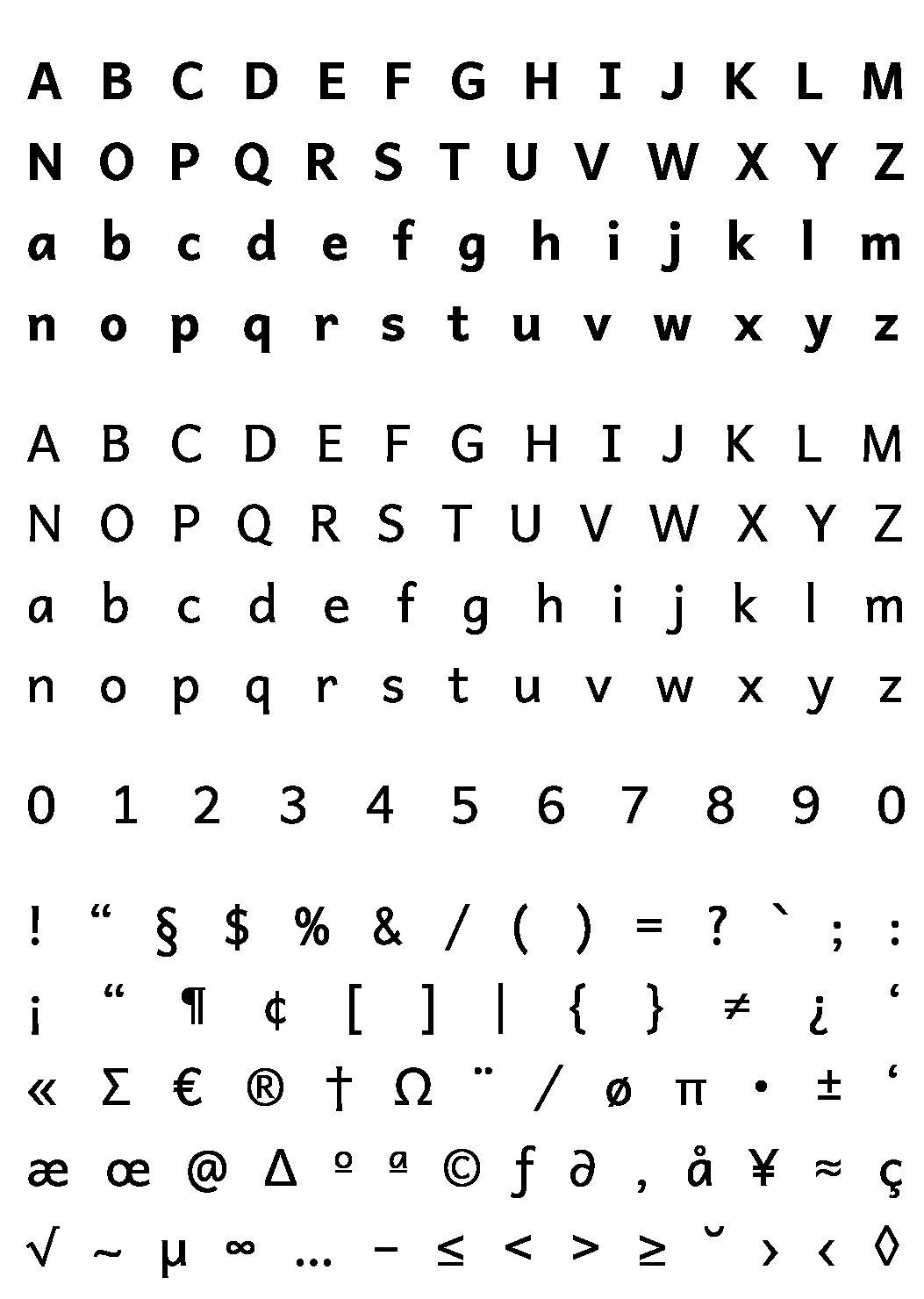

OPENSCIED COMMUNITY MARKETING GUIDELINES

Contact
info@openscied.org
www.openscied.org

DESIGN AND BRAND GUIDELINES

WHY THIS IS IMPORTANT
THE DESIGN GUIDELINES
Theseguidelinesdescribethevisualandverbalelementsthatrepresent OpenSciEd’sidentity.Thisincludesourname,logo,andotherelementssuchas color,type,andgraphics.
Sendingaconsistentandcontrolledmessageofwhoweareisessentialtopresenting astrong,unifiedimageofourorganization.
TheOpenSciEdbrand,includingthelogo,name,colors,andidentifyingelements, arevaluablecompanyassets.
Eachofusisresponsibleforprotectingtheorganizations’interestsbypreventing unauthorizedorincorrectuseoftheOpenSciEdnameandmarks.
Thisupdatedversionofthedesignguidelinesincludesfurtherguidanceand directionforourpartners.Thisisfortheirbenefitandforthemaintenanceofthe OpenSciEdbrand.
01 SECTION 1 INTRODUCTION
GUIDANCE FOR OUR PARTNERS
Wevalueourpartners.Weshareacommitmenttotransformingscience education,andourpartnersprovidecriticalservicestohelpeducatorsmakeanimpact intheclassroom.
Ourmutualgoalistomakecommunicationsasclearaspossibleforeducatorsand leadersinterestedinOpenSciEdcurriculumandpartnerservices.Becauseofourmodel, therearemultiplemarketingeffortsfromvariouspartnersinthefieldatanygiventime. Thosecampaignsareinherentlytiedtoourownmarketingefforts,curriculum,and reputation—andthereforeeachother.However,thiscan,attimes,resultinaccidental orunintendedreputationdamage,disparagement,infringement,confusion,andother consequencesforOpenSciEdorotherpartners.
Thissectionprovidesguidanceforpartnersonmarketingandcommunicationsefforts toavoidconfusionamongeducators,maintainOpenSciEd’sbrandintegrity,andensure everyoneandthecoreproductcansucceed.
Itincludes:
• ChecklistofitemsrequiringOpenSciEdapproval
• InformationonCCBYlicensing
• Guidanceforcertifications
• Do’sandDon’ts
MARKETING REVIEW PROCESS
OpenSciEdrequiresreviewofthefollowingmarketing materialsfrompartnersbeforedistribution.Materialswill bereviewedbasedontheiradherencetotheguidelines andexpectationslaidoutintheDo’sandDon’tstableon page8.
Partnersshouldsubmitmaterialsusingtheappropriate formsprovidedinBasecampwithatleast2weeksoflead timeforreview.
• Pressmaterials(e.g.,pressreleases)
• Websitecopy
• Research,whitepapers,etc.
• Emailsorothercommunicationsthatemploy OpenSciEd’sname,branding,orbadges
• Substantialadvertisingormarketingcollateral and/orassets
CC BY LICENSE AT-A-GLANCE
OpenSciEd Middle School Materials
OpenSciEdmiddleschoolresourcesoperateunder CreativeCommonsAttributionLicenses(CCBY). Pleasefindsimple,keyaspectsofthelicensebelow andmoreonCreativeCommons’website
UnderOpenSciEd’sCCBYlicense…
• Youarefreetoshare–copyandredistributethe materialinanymediumorformatforanypurpose, evencommercially.
• Youarefreetoadapt–remix,transform,andbuild uponthematerialforanypurpose,even commercially.
• Youmustprovideattribution–giveappropriate credit,providealinktothelicense,andindicateif changesweremade.Youmaydosoinany reasonablemanner,butnotinanywaythatsuggests thelicensorendorsesyouoryouruse.
• Youmaynotapplyadditionalrestrictions–legal termsortechnologicalmeasuresthatlegallyrestrict othersfromdoinganythingtheoriginallicense permits.
Learnmorehere: https://creativecommons.org/licenses/by/4.0/
OpenSciEd High School and Elementary Materials
OpenSciEdhighschoolandelementaryresources operateundertheCC-BY-NClicenseavailableat https://creativecommons.org/licenses/by-nc/4.0/.
AlthoughtheCC-BY-NCLicenseislimitedto non-commercialuses,commercialusesofourclassroom curriculummaterialsarestillencouragedandwillnowbe availablepursuanttoourLicenseforCommercialuseof CurriculumMaterialsavailableat https://www.openscied.org/commercial-license/, whichsupplementstheCC-BY-NCLicense.Commercial usesofacertainscalemayrequirethepaymentoffeesto OpenSciEdtosupportthedevelopmentand maintenanceoftheOpenSciEdassets.
Youmaycopy,distribute,andmodifytheOpenSciEd curriculummaterials(the“CurriculumMaterials”)for Non-Commercialpurposespursuanttothetermsand conditionsoftheCC-BY-NClicense,whichrequires, inpart,thatyouprovideattributiontoOpenSciEd,and, foronlineuses,provideaprominenthypertextlinkback toOpenSciEd’swebsitelocatedatwww.openscied.org
Learnmorehere: https://www.openscied.org/commercial-license/
CERTIFICATION TYPES AND BADGES
Wehavemanydifferentpartnerswithvariousroles.Belowwequicklyoutlinehoweachpartnercanuseelementsofthe OpenSciEdbrandaccordingtoouragreementswithyou.Ifyouhavefurtherquestions,pleasereachouttous.
Regardingapprovals,pleasenotetheprevioussection(onpage5)forrequestsforreview.Partnerorganizationsmayonly usethesebadgesiftheyhaveavalidcontractinplacewithOpenSciEd.
CertifiedOERKitProvidersmayusetheterm “OpenSciEdCertified”whendiscussingtheirkitproducts anduseOSE’slogo,name,andmarkinapproved materials,marketing,anddistributionwhendesignated “OpenSciEdCertified”.

Thesepartnersshouldfeaturethisbadge prominently,inmaterialsandcommunications.
CertifiedVersionProvidersmayuseOSEcontentandthe term“OpenSciEdCertified”anduseOSE’slogo,name, andmarkinapprovedmaterials,marketing,and advertisingwhendesignated“OpenSciEdCertified”.

Thesepartnersshouldfeaturethisbadge prominently,inmaterialsandcommunications.
AssessmentPartnersmayusetheterm“OpenSciEd Aligned”whendiscussingtheiralignedassessment productsanduseOSE’slogo,name,andmarkin approvedmaterials,marketing,anddistributionwhen designated“OpenSciEdAligned”.
TechnologyPartnersmayuseOSE’slogo,name,and markwhenadvertisingenhancementsthey’vecreated alignedtothematerials.
CertifiedProfessionalLearningProviderswilluseOSE’s logo,name,andmarkwhenadvertisinganddelivering OSEprofessionallearningservices.

PrintedOERVersionPartnerswillusetheterm “OpenSciEdCertified”whendiscussingtheirprinted productsanduseOSE’slogo,name,andmarkin approvedmaterials,marketing,anddistributionwhen designated“OpenSciEdCertified”.

Thesepartnersshouldfeaturethisbadge prominently,inmaterialsandcommunications.
Thesepartnersshouldfeaturethisbadge prominently,inmaterialsandcommunications.
OpenSciEdFacilitators,uponbeingawardedthe correspondingcredentials,maynotethattheyarean “OpenSciEdCertifiedFacilitator”andfeaturetheirbadge withoutexpirations.

Thesepartnersshouldfeaturethisbadge prominently,inmaterialsandcommunications.
Do’s and Don’ts
Therearemanywaysthatmarketingmaterialsandlanguagecanmakeinadvertentimplicationsaboutorcause confusionregardingOpenSciEd’scurriculumand/orbrand.Thesearejustafewguidelinestokeepinmind.
DO
DOattributeauthorship,ownership,copyright, andcredit toOpenSciEdwhenapplicableonproductsand promotionalmaterialsandlanguage.
DOhighlightyourspecificproductvalue-adds,likeproduct support,additionalresources,printingandpackaging,and more.Forexample,“Wearecertifiedtodistribute OpenSciEd’shigh-quality,adaptablecurriculumwith additional[X,Y,orZbenefitsorsupport].”
DOhighlightbenefits,improvements,andfunctions inherentintheOpenSciEdcurriculum.Marketthe advantagesoftheOpenSciEdcurriculumandyourunique additionslikeprinting,packaging,etc.
DOuseOpenSciEdlogos,language,andothermarketing contentinapprovedways.Thiscanbothlendlegitimacyto yourproductandhelpelevatethebrandofOpenSciEd.
DON’T
DON’Tclaimorimplyauthorshiporcopyrightofthe originalcontentthatwascreatedbyOpenSciEd.
DON’Tframeyouradditionsinwaysthatcouldimply OpenSciEdisinferior,problematic,orbad.Forexample, avoidusingphraseslike“noweasiertoread”or“now disabilitycompliant,”whichimplythatthecurriculumdoes notinherentlyhavethesecharacteristics.
DON’Timplythattheseinherentfeaturesandbenefitsare exclusiveoruniquetoyouiftheyapplytoanyuseofthe OpenSciEdcurriculum.Don’tsay“Ourversionistheonly onethathasbeenfieldtestedextensively”.Instead,say somethinglike“TheOpenSciEdcurriculumhasbeenfield testedextensively”.
DON’Tuse,customize,ortrademarkmarketingmaterials andlanguage(includingemails,professionallearning menus,events,webinars,andmore)withoutOpenSciEd approvaland/orattribution.Examplescouldincludeusing assetsandremovingOpenSciEd’snameandlogoorusing namingconventionsandlanguagesimilartoorthesameas OpenSciEdofferings.
DOnotethatyouarean“OpenSciEdCertified”partnerin yourmaterialsorinwebsitedomainsandsocialmedia handles.Forexample,aURLdirectingtoyourOpenSciEd productsorofferingsshouldnote“OpenSciEdCertified”. (ex:orgname.com/OSEcertified)
DOtakeamomenttoexplainyourrelationshipwith OpenSciEdandhowtheopenlylicensednatureofthe OpenSciEdcurriculumallowsyoutomodify/adapttheir curriculumtobeevenmoreusefulforeducators.This doesn’tneedtobealeadstatement,butthiskindof explanationsomewherecanhelpthecustomer,OpenSciEd, andyourbrand.
DON’Tuselanguage,materials,websitedomains,orsocial mediahandlesthatsuggestyouareOpenSciEd.Similarly, don’tuselanguage,materials,websitedomains,orsocial mediahandlesthatsuggestthatyourproductsareNOT derivedfromOpenSciEd.(ex:orgname.com/OSEor orgname.com/science)
02 SECTION 2 LOGO
LOGO INTRODUCTION
THE FULL LOGOTYPE
TheOpenSciEdMasterbrandorOrganizationLogocomprisestwoelements,thelogo symbolandlogotype.TheLogoSymbolisanatom-inspiredgraphicthatimmediately drawstheconnectiontoourscience-basedcontent.
TheLogoTypehasbeencarefullychosenforitsclean,modern,highlylegiblestyle whichhasbeenfurtherenhancedbytheuseofuppercaseletterstodelineatethe wordroots.
ThethreeofficialcolorsarespecificformulationsofBlue,Orange,andGreen, supportedbyanaccentshadeofGray.Itisavibrantblendofcolorschosenfortheir boldcombinationandversatilityincurriculumpresentation.
Thesecolorshavebeenselectedwithsensitivitytoprintandwebstandardsasshown inthefollowingpagesandareeasilyimplemented.
PRIMARY LOGO

1) The Primary Logo
Theprimarylogoisthefullcolorlogousedonwhitebackground. Fordarkerbackgroundsyouwillfindappropriatealternativesbelow.


1) Logo Symbol
Consistsofourmulti-coloredatom.
2) Logo Title
Carefullychosenforitsmodern,highlylegible style,whichhasbeenfurtherenhancedbythe useofuppercaselettersandcolordistinctions tobreakoutthewordroots.Thefontthatis usedhereisBentonSansandshouldnotbe usedforanymaterialsotherthanthelogotype.
3) Logo Dark Version
willbeusedwhenthebackgroundisalight shadeorimagethatmakestheprimaryfull colorlogodifficulttoread.
4) Logo Light Version
willbeusedwhenthebackgroundbackround isadarkshadeorimagethatmakesthe primaryfullcolorlogodifficulttoread.
DownloadLogos
Attention:Useofanystylized,handdrawnor otherversionsofourlogoisnotpermitted. Thisunderminesthelogosystemandbrand consistency.PleaseconsultwithOpenSciEdif youhaveanyquestionsorneedfurtherhelp.
STACKED LOGO

1) The Stacked Logo
Whenavailablerealestatedoesnotaccommodatetheprimary horizontallogo,thestackedversionshouldbeused.Fordarker backgroundsyouwillfindappropriatealternativesbelow.


1) Logo Symbol
Consistsofourmulti-coloredatom.
2) Logo Title
Carefullychosenforitsmodern,highlylegible style,whichhasbeenfurtherenhancedbythe useofuppercaselettersandcolordistinctions tobreakoutthewordroots.Thefontthatis usedhereisBentonSansandshouldnotbe usedforanymaterialsotherthanthelogotype.
3) Logo Dark Version
willbeusedwhenthebackgroundisalight shadeorimagethatmakestheprimaryfull colorlogodifficulttoread.
4) Logo Light Version
willbeusedwhenthebackgroundbackround isadarkshadeorimagethatmakesthe primaryfullcolorlogodifficulttoread.
DownloadLogos
Formatsincluded.eps|.ai|.png|.jpg
Attention:Useofanystylized,handdrawnor otherversionsofourlogoisnotpermitted. Thisunderminesthelogosystemandbrand consistency.PleaseconsultwithOpenSciEdif youhaveanyquestionsorneedfurtherhelp.
CLEARSPACE
LOGO CLEARSPACE
Itisimportanttokeepcorporatemarksclearofany othergraphicelements.Toregulatethis,anexclusion zonehasbeenestablishedaroundthecorporatemark. Thisexclusionzoneor‘Clearspace’indicatestheclosest anyothergraphicelementormessageshouldbe positionedinrelationtothemarkandourorganization name–theyhaveafixedrelationshipthatshouldnotbe alteredinanyway.
RULEOFTHUMB
UsehalfthefinalsizeoftheOpenSciEdlogomarkas aspacertodeterminetheappropriateclearspacefor anysituation.

LOGO APPLICATION
LOGO USAGE
Belowarejustafewexamplesofproperandimproper logoapplication.Neverstretchorcontortthelogoorany brandmark.Alwaysresizeproportionallyandstrivefor clearvisibilityandlegibility.




Avoidplacingthelogooverbackgroundpatternsor photographsthatmakeitdifficulttoseeorread.




Colorlogoistoolow contrasttocomplywith accessibilitybest practices
Colorlogoisdifficultor impossibletoreadover darkand/orbrandcolors
Placingthelogo-singleor fullcolor-overthetopof busybackgroundsor backgroundsthatdon’t provideenoughcontrast shouldalwaysbeavoided
CO-BRANDING
TheOpenSciEdbrandandpartnerbrandsshouldbe displayedofcomparablesizewhenusedtogether. Each logoshouldbeopticallyequalinsizewitheachother. Clearspaceismeasuredwithaminimumofhalf ofthe LogoSymbol’sdimensions(themulti-coloredatom).
TheOpenSciEdlogoshouldbeontheleft,unlessthe partnershipisledbythepartner. Averticalrulemustbe usedtodelineatebetweenthetwobrands.

Vertical Rule
SLATE GRAY #788582
Width: 1 pixel
Height: Clearspace






OpenSciEdCertifiedPartnersandProviderscanuse OpenSciEd’slogoincombinationwiththeirownmark.
OpenSciEdbrandshouldbeassociatedwiththe OpenSciEdderivativeproductsthecompanycarriesand notassociatedwithnon-OpenSciEdderivativeproducts.
PartnerLogo










SUB-BRANDING
Sub-brandscaneasilybemadewiththehorizontal orientationoftheprimarylogo. Typeforthesubbrandis OpenSansNormal,setinall-capscharacters.

SUB-BRAND FONT
Open Sans Regular All-Caps
SIZE
Equal in height to the nucleus of the atom in the Logo Symbol.
COLOR
Use SLATE GRAY (#788582) when using the full-color logo. Otherwise, match color to one-color logo.


HIGH SCHOOL SCIENCE
PLACEMENT
Left-align text optically with the electron orbit.
PLACEMENT
Vertically distance the text from the Logo Symbol by 1 nucleus diameter.
USING BADGES
PartnersmustuseOpenSciEd’slogoortheirbadgewhendiscussingtheirmaterials.
SIZE
Optically equal in size to the Logo Symbol.


ALIGNMENT

Bottom-align badges with the OpenSciEd logo, or with sub-brand if present. Badge should rest on opposite side of the layout from the logo.
03 SECTION 3 TYPOGRAPHY
COMMUNICATIONS AND CURRICULUM FONTS
TYPOGRAPHY
Typographyplaysanimportantroleincommunicatingqualityandconsistency. Carefuluseoftypographyreinforcesourpersonalityandensuresclarityandharmony inallOpenSciEdcommunicationsandoutputs.Wehaveselectedanarrowcollection offontsforspecificapplications.Useoffontsnotspecifiedinthisguideshouldbe avoidedunlessexpresslypermittedbyOpenSciEd.
Certifiedversionpartnersmayapplytheirownstyleguidetotheirderivative materialstobereviewedduringmaterialscertification.OERkit&printpartners mustfollowOpenSciEd'sdesignguidelines.
PRIMARY BRAND FONT
PRIMARY FONT OPEN SANS
DESIGNER: STEVE MATTENSON
USE
Open Sans should be used on the OpenSciEd.org website and all communications and marketing outputs.
WEIGHTS
All available weights of this font are acceptable for use.
OPEN SANS

MATERIALS FONTS
MIDDLE SCHOOL TEACHING UNITS - TITLE
TITLE FONT BOOGALOO
DESIGNER: JOHN VARGAS BELTRÁNUSE
Boogaloo is used strictly as a title font for OpenSciEd teaching units (Middle School only).
WEIGHTS
There is only one bold weight available for this font.

MATERIALS FONTS
MIDDLE SCHOOL TEACHING UNITS - BODY COPY
UNIT BODY COPY FONT CABIN
DESIGNER: PABLO IMPALLARIUSE
Cabin is used for body copy in OpenSciEd teaching units.
WEIGHTS
All available weights of this font are acceptable for use.
CABIN

MATERIALS FONTS
ELEMENTARY TEACHING UNITS - TITLE
TITLE FONT CABIN SKETCH
DESIGNER: IMPALLARI TYPE
USE Cabin Sketch is used for titles, subtitles and headers in OpenSciEd teaching units (Elementary School only).
WEIGHTS
There is only one bold weight available for this font.
CABIN SKETCH

MATERIALS FONTS
ELEMENTARY TEACHING UNITS - BODY COPY
TITLE FONT ANDIKA
DESIGNER: SIL INTERNATIONALUSE
Andika is used strictly as a body text for OpenSciEd teaching units (Elementary School only).
WEIGHTS
All available weights of this font are acceptable for use.
Andika

TYPOGRAPHY EXAMPLES
TYPOGRAPHY IN USE
CABIN (SUBHEAD)
BOOGALOO (TITLE ONLY)
CABIN (BODY COPY)
All weights of this font are approved for use


TYPOGRAPHY EXAMPLES
TYPOGRAPHY IN USE - ELEMENTARY
COVERS
CABIN SKETCH (TITLE ONLY)

TYPOGRAPHY EXAMPLES
TYPOGRAPHY IN USE - MIDDLE SCHOOL COVERS
BOOGALOO (TITLE ONLY)

TYPOGRAPHY EXAMPLES
TYPOGRAPHY IN USE - HIGH SCHOOL STUDENT COVER

04 SECTION 4 BRAND COLOR SYSTEM
THE PRIMARY COLOR SYSTEM AND COLOR FORMULAS
THE COLOR SYSTEM
ColorplaysacriticalroleintheOpenSciEdbrandidentitysystem.Thefollowing colorpalettesarebrokenoutintogeneralbrandandspecificcurriculumaudiences. Theprimarycolorpalettehasbeendevelopedtoachievea“OneVoice”color scheme.Consistentuseofthesecolorswillcontributetothecohesivelookofthe OpenSciEdbrandidentityacrossallrelevantmedia.Checkwithyourdesigneror printerwhenusingthebrandcolorstoensureoutputwillbeconsistentforthe deliveryplatform-printorweb.
Certifiedversionpartnersmayapplytheirownstyleguidetotheirderivative materialstobereviewedduringmaterialscertification.OERkit&printpartners mustfollowOpenSciEd'sdesignguidelines.
BRAND COLOR PALETTE
PRIMARY COLOR SYSTEM
OpenSciEd has four official colors: Blue, Orange, Green and Gray. These colors have become a recognizable identifier for the organization.
USE
Use them as the dominant color palette for all internal and external visual presentations of the organization.
BLUE
COLOR CODES
RGB: R44 G54 B117
HEX: #2C3675
COLOR TONES
ORANGE
COLOR CODES
RGB: R245 G126 B32
HEX: #F57E20
COLOR TONES
GREEN
COLOR CODES
RGB: R152 G202 B62
HEX: #98CA3E
COLOR TONES
SLATE GRAY
COLOR CODES
RGB: R120 G133 B130
HEX: #788582
COLOR TONES
SECONDARY COLOR PALETTES
WEBSITE
NGSS
SCOPE & SEQUENCE
NEUTRALS
CURRICULUM COLOR PALETTES
FIRST
SECOND
Concrete Text Background Black Text Dark Gray Text for Student Response to Prompt
CURRICULUM COLOR PALETTES
SHARED BY ALL
Concrete Text Background Black Text
Dark Gray Text for Student Response to Prompt
THIRD
FOURTH
FIFTH
CURRICULUM COLOR PALETTES
SHARED BY ALL
Concrete Text Background Black Text Dark Gray Text for Student Response to Prompt
SIXTH
SEVENTH
EIGHTH
PROFESSIONAL DEVELOPMENT MATERIALS
CURRICULUM COLOR PALETTES
SHARED BY ALL
Concrete Text Background Black Text Dark Gray Text for Student Response to Prompt
H.S. Biology
H.S. Chemistry
H.S. Physics
CURRICULUM COLOR PALETTES
PD PRESENTER FACILITATOR MATERIALS
COVID SPECIFIC
COVID K-2
COVID 3-5
COVID 6-8
COVID 9-12
05 SECTION 5 BRAND COLOR SYSTEM
THE STREAMLINE LIGHT ICON LIBRARY
A VERSATILE AND AFFORDABLE THIN-LINE ICON LIBRARY
Aswithallaspectsofthevisualbrand,theconsistentuseoficonographywillhelp streamlineandprofessionalizeallexternaloutputsandmaterials.
TheStreamlineLightlibraryof“thin-line”iconsoffersvisualstocovernearlyany contentneed.Adheringtothisthin-lineiconstylealsomakesitveryeasytofind fittingiconsinotherstocksources.Thisisaverypopularandreadilyavailable illustrationstyle.
Onlythepaidvector.SVGfilesshouldbeusedwhendownloadingfromStreamline. Pleasenotethatunpaid.PNGversionsareavailable,butrequireaspecific attributionandhyperlinkforeveryicon.Thisshouldbeavoidedexceptforinternal wireframesorotherForPositionOnlycomprehensives.
TheStreamlineLightlibrarycanbefoundhere: https://app.streamlinehq.com/streamline-light
Certifiedversionpartnersmayapplytheirownstyleguidetotheirderivative materialstobereviewedduringmaterialscertification.OERkit&printpartners mustfollowOpenSciEd'sdesignguidelines.
TheStreamlineLightlibrarycanbefoundhere:https://app.streamlinehq.com/streamline-light

06 SECTION 6 UNITS
UNIT TITLES AND NAMING
Unitnumberhasthegradelevelandtheunitnumberafterthedecimalpoint.The unittopicisthesciencetopicthatiscoveredintheunit.Theunitnicknameisthe nameoftheunitthatisusedwithstudentswhenreferringtotheunit.Theunittitle isthequestiontheunitistryingtoanswer.
UNIT TITLES AND NAMING
6.1 Light and Matter One-way Mirror
6.2 Thermal Energy Cup Design
6.5 Natural Hazards Tsunami
6.6 Cells and Systems Healing
7.1 Chemical Reactions and Matter Bath Bombs
7.2 Chemical Reactions and Energy Homemade Heater
7.3 Metabolic Reactions Inside our Bodies
7.4 Matter Cycling and Photosynthesis Maple Syrup
7.5 Ecosystems Dynamics and Biodiversity Palm oil
7.6 Earth's Resources and Human Impact Droughts and Floods
8.1 Contact Forces Collisions
Why do we sometimes see different things when looking at the same object?
How can containers keep stuff from warming up or cooling down?
Where do natural hazards happen and how do we prepare for them?
How do living things heal?
How can we make something new that was not there before?
How can we use chemical reactions to design a solution to a problem?
How do things inside our bodies work together to make us feel the way we do?
Where does food come from, and where does it go next?
How does changing an ecosystem affect what lives there?
How do changes in Earth’s system impact our communities and what can we do about it?
Why do things sometimes get damaged when they hit each other?
8.2 Sound Waves Sound How can a sound make something move?
8.3 Forces at a Distance Magnets
8.4 Earth in Space Space
8.5 Genetics Muscles
8.6 Natural Selection and Common Ancestry Penguins
How can a magnet move another object without touching it?
How are we connected to the patterns we see in the sky and space?
Why are living things different from one another?
How could things living today be connected to the things that lived long ago?
UNIT TITLES AND NAMING
B.1 Ecosystem Interactions & Dynamics Serengeti
B.2 Ecosystems Matter & Energy Fires
B.3 Inheritance & Variation of Traits Cancer
B.4 Natural Selection & Evolution of Populations Urbanization
B.5 Common Ancestry & Speciation Bears
C.1 Thermodynamics in Earth's Systems Polar Ice
C.2 Structure & Properties of Matter Lightning
C.3 Molecular Processes in Earth Systems Space Survival
C.4 Chemical Reactions in Our World Oysters
C.5 Energy from Chemical & Nuclear Reactions Fuels and Nuclear Energy
P.1 Energy Flow from Earth's Systems Electricity
P.2 Energy, Forces, & Earth's Crust Afar
P.3 Collisions & Momentum Vehicle Collisions
P.4 Meteors, Orbits, & Gravity Meteors, Orbits, & Gravity
P.5 Electromagnetic Radiation Microwaves
P.6 Stars & the Big Bang Stars
How do ecosystems work, and how can understanding them help us protect them?
What causes fires in ecosystems to burn and how should we manage them?
Who gets cancer and why? What can we do about it?
How does urbanization affect nonhuman populations, and how can we minimize harmful effects?
What will happen to Arctic bear populations as their environment changes?
How can we slow the flow of energy on Earth to protect vulnerable coastal communities?
What causes lightning and why are some places safer than others when it strikes?
How can we find, make, and recycle the substances we need to live on and beyond Earth?
Why are oysters dying, and how can we use chemistry to protect them?
Which fuels should we design our next generation vehicles to use?
How can we design more reliable systems to meet our communities’ energy needs?
How do forces in Earth’s interior determine what will happen to the surface we see?
What can we do to make driving safer for everyone?
How have collisions with objects from space changed Earth in the past, and how could they affect our future?
How do we use radiation in our lives, and is it safe for humans?
Why do stars shine and will they shine forever?



BrandPortal
https://www.openscied.org/brand

